![]()
Spring 2012 | Middle East Quarterly, Volume XIX: Number 2; pp. 23-32 | by Ignacio Alvarez-Ossorio

For a brief moment in 2000 and 2001, it looked as if there might be a "Damascus Spring" with the investiture of Bashar al-Assad and his British-born first lady. But all signs of openness were soon quashed by the repressive measures first perfected by Bashar's father and Syria's long-time ruler, Hafez.
Authoritarian regimes have traditionally been disinclined to accept any political or social opposition and have been hostile to the development of an independent civil society that could form a counterweight to state power.
Article 8 of the Syrian constitution established the Baath party, which has prevented any independent parties from emerging since the 1963 military coup that brought it to power as “the leading party in the state and society.”[1] Yet despite this systematic repression, there has been a sustained effort by a small group of intellectuals and critics over the past decade to transform the country’s political system and make it more open and accountable.
While these activists did not ignite the uprising that has shaken Syria since March 2011, their courageous defiance of Bashar al-Assad’s regime has given them high standing among many Syrians. They may yet play a significant role in shaping Syria’s future.
Commitment to Freedom
Bashar al-Assad’s assumption of the presidency in July 2000 gave rise to a brief period of unprecedented easing of state repression known as the “Damascus Spring” whereby dozens of discussion forums and associations were created, all calling for political liberalization and democratic openness.
This sector of Syrian civil society came to light with the “Declaration of the 99,” signed by numerous intellectuals including Burhan Ghalyoun, Sadeq al-Azm, Michel Kilo, Abdul Rahman Munif, Adonis and Haidar Haidar, who demanded: 1) an end to the state of emergency and martial law applied in Syria since 1963; 2) a public pardon to all political detainees and those who are pursued for their political ideas and permission for all deportees and exiled citizens to return; 3) a rule of law that will recognize freedom of assembly, of the press, and of expression; 4) freedom in public life from the laws, constraints, and various forms of surveillance, allowing citizens to express their various interests within a framework of social harmony and peaceful [economic] competition and enable all to participate in the development and prosperity of the country.[2]
On January 1, 2001, a group of Syrian lawyers demanded a complete reform of the constitution, the lifting of emergency laws, and the concession of full civil liberties. Shortly thereafter, a group of activists published the founding charter of their civil society committee — better known as the “Declaration of the 1,000.”[3] The following day, the Jamal Atassi Forum for Democratic Dialogue was established with the participation of communists, Nasserites, socialists and Baathist critics of the regime, and on March 7, authorization was given to create independent organizations for the defense of human rights as well as cultural and social associations made up of moderate Muslims. This group included the Islamic Studies Center, headed by Muhammad Habash, a progressive scholar opposed to the Muslim Brotherhood, who served as a parliament member. By July 3, 2001, the Human Rights Association of Syria had been established with lawyer Haitham al-Malih as president.
In just a few months, two hundred discussion clubs and forums were created. Reacting to the proliferation of spaces where the future of Syria was being freely debated, the regime pushed back, fearful it might lose its monopoly on power. Invoking a need to maintain national unity in the face of external threats, beginning in September 2001, the regime arrested deputies Riad Saif and Mamoun al-Homsi, economist Arif Dalila, lawyer Anwar al-Bunni, and Atassi Forum spokesman Habib Issa, followed in short order by Kamal al-Labwani and Haitham al-Malih.[4] All were sentenced to between three and twelve years in jail on charges of “weakening national sentiment” and “inciting sectarian strife.” Other important figures were forbidden to leave the country including Radwan Ziyyade, director of the Damascus Center for Human Rights Studies, and Suhair Atassi, director of the Jamal Atassi Forum.
In an open challenge to the regime, prominent figures persisted in the demand for reform. The Damascus declaration stated that the “establishment of a democratic national regime is the basic approach to the plan for change and political reform. It must be peaceful, gradual, founded on accord, and based on dialogue and recognition of the other.” This declaration also called on the government to “abolish all forms of exclusion in public life by suspending the emergency law; and abolish martial law and extraordinary courts, and all relevant laws, including Law 49 for the year 1980 [which made membership in the Muslim Brotherhood a capital offense]; release all political prisoners; [allow] the safe and honorable return of all those wanted and those who have been voluntarily or involuntarily exiled with legal guarantees; and end all forms of political persecution by settling grievances and turning a new leaf in the history of the country.”[5]
The declaration was the result of efforts made by journalist Michel Kilo to unify the main political forces, including the banned Muslim Brotherhood. Kilo had met with the group’s leader, Ali Sadreddine Bayanouni, in Morocco where they agreed on a program based on nonviolence, democracy, opposition unity, and political change. A further public attack on the regime, the Beirut-Damascus declaration, which called on the Syrian regime to recognize Lebanon’s independence, establish full diplomatic relations and demarcate the joint border, led to a second wave of arrests during which Kilo and Bunni were imprisoned.[6] With this example, the regime tried to put a stop to its opponents’ efforts and to ensure that their demands did not awaken Syrian society from its political lethargy.
The People’s Revolt
One of the dissidents’ foremost weaknesses was their inability to get their message out due to draconian restrictions on the freedom of gathering and expression. In a 2005 interview, noted activist Kamal al-Labwani provided an accurate, indeed prophetic, prognosis of the current situation when he cautioned that
there is no politically mobilized street. When that happens, everything will change. Today, the opposition is purely symbolic, and this sort of opposition is incapable of uniting because it is based on personalities, on the capability of single individuals to confront the authorities… Society is watching, and when the masses begin to move, they will move behind those who represent them… So right now, we are reserving space in that arena so that when the day comes that people move to the street — either because of foreign or their internal pressures — we will be ready.[7]
The fall of Zine al-Abidine Ben Ali in Tunisia, Husni Mubarak in Egypt, along with the upheavals in Yemen, Libya, and Bahrain, had a contagious effect across the Arab world. Most Syrian dissidents saw the uprisings as the long-awaited opportunity to introduce major changes inside the country. In an article in the Lebanese newspaper as-Safir, the prominent Syrian dissident Michel Kilo argued, “We are entering a new historical stage based on the primacy of citizenship, freedom, justice, equality, secularism, and the rights of men and citizens.”[8] After spending five years in prison, Anwar al-Bunni stated that “an event like this only happens once every 200 years, and it is clearly going to bring about a radical change.”[9]
On March 10, former parliamentarian Mamoun al-Homsi appealed to the Syrian people: “After fifty years of tyranny and oppression, we are beginning to see the sunlight of freedom approach.”[10] He openly accused the regime of resorting to repression, corruption, and sectarian division to remain in power. On March 15, after a first unsuccessful attempt, an anonymous Facebook group, The Syrian Revolution 2011, called for a second day of rage, which led to a mass demonstration against the regime to demand democratic openness.[11]

While the turmoil that roils Syria today was not sparked by the efforts of the intelligentsia, longtime critics such as Michel Kilo and Anwar alBunni are, at the very least, the spiritual fathers of the current crop of demonstrators.
Despite these appeals, few in Syria expected Assad to follow the path taken by Ben Ali and Mubarak and abdicate power. Rather, it was hoped that the new regional developments would force the regime to abandon its stubborn resistance to change and, in the face of pressure from the street, introduce reforms. As the more politicized elements in Syrian society had been decimated by successive waves of repression, there was little attempt at the outset to mobilize the masses, reasoning that they had little power to affect such change. Thus, the outbreak of popular rage surprised everyone. Suhair al-Atassi, who was in hiding at the time, recently said,
We have been subjected to suppression and murder for merely calling for freedom, democracy, general freedoms, the release of all prisoners of conscience, an end to the state of emergency, and the return of all political exiles. At the time, we said that any suppression would cause the volcano to erupt… we knew that we were working slowly but surely toward freedom, but we didn’t dream of a revolution like this breaking out. It was the Syrian youth who made this dream a reality.[12]
The revolt began in the southern city of Dar’a and then gradually and progressively spread across almost the entire country. The demonstrations, which at first mobilized a few thousand people at best, began to enjoy great prestige. In Bunni’s words:
In the past, only a few of us dared to call for freedom and human rights. We used to feel isolated, as the majority of people avoided us for fear of retribution from the authorities. After my release, I have realized that my demands became the demands of the entire Syrian people.[13]
Initially, important sectors of the population demanded limited reforms, but Assad’s brutal repression raised the bar. Appearing before parliament on March 30, 2011, the president made it clear that any reforms would not come about as a result of popular pressure and that the process of political liberalization would not be hurried. Some members of the intelligentsia believed that the regime would not be able to introduce reforms without collapsing:
We all know that the authorities lie and they won’t permit anyone to speak out because the regime is corrupt and dictatorial, and corruption and dictatorship fundamentally contradict transparency and freedom of opinion because the first opinion that anyone would express would be opposition to the regime’s corruption and tyranny and the crimes it has committed. And then they’ll face arrest, interrogation, and a trial. They say, we’ll enact a party law; we’ll implement reform, but these are all lies because these authorities are incapable of it.[14]
Michel Kilo added,
Syria today is experiencing an existential crisis related to the distribution of wealth, social justice, freedom, and political participation, and this is not going to be resolved with repression. The police should be arresting killers, thieves, and smugglers, but not hungry people with nothing to put in their mouths.[15]
As the uprising spread, the Syrian regime blamed the violence on armed radical elements seeking to destabilize the country. Assad told parliament that Syria was facing a conspiracy intended to provoke a sectarian war between Sunnis and Alawites.[16] The regime tried to use this tactic to play for time in the midst of a rebellion that had taken it by surprise as well as to justify the high number of civilians killed by the security services and pro-government armed groups. Repression has intensified in the ensuing months and spread to most of the cities, but the security forces have failed to suppress the popular uprising. Faced with the success of the demonstrations, the Syrian regime was forced to back down in July and adopt a series of cosmetic reforms to try to quell the unrest, including the initiation of a national dialogue.[17] The rebels roundly declared these measures insufficient and designed merely to buy the Assad regime more time.
As the unrest has continued, most activists have come to believe that the protest wave has transformed into a revolution that will bring about the fall of the regime. From her hiding place in July 2011, Suhair al-Atassi gave an apt description of the spirit of the demonstrations:
It’s a revolution… triggered by the Syrian people seeking to stand up and say that they are citizens and not subjects, and that Syria belongs to all its citizens and not just the Assad family. This is a revolution of the youth who are demanding freedom and are being confronted with violence and murder… Today Syria is witnessing a battle for freedom by unarmed civilians urging the ouster of a regime that has utilized methods of brutal and inhumane suppression. They have brutally attacked and killed the protesters whilst the demonstrators have nothing but their words to defend them.[18]
An Opposition Divided
As a result of fifty years of repressive measures, it is not surprising that the recent uprising has been an ensemble movement with contributions from different players. The economist and commentator Omar Dahi has identified five clearly differentiated groups taking part in the unrest: traditional opposition parties (socialists, Nasserites, and communists); dissident intellectuals; the youth movement, including the leaders of the Local Coordination Committees (LCC), which has driven the revolution and was joined by other sectors of society; a disorganized cohort of conservative Muslims; and armed Salafist groups who represent a minority.[19]
Most of these groups (with the exception of the Salafi elements) agreed about the need to avoid violence, reject sectarianism, and prevent foreign intervention. On August 29, 2011, the LCC stated,
While we understand the motivation to take up arms or call for military intervention, we specifically reject this position as we find it unacceptable politically, nationally, and ethically. Militarizing the revolution would minimize popular support and participation in the revolution. Moreover, militarization would undermine the gravity of the humanitarian catastrophe involved in a confrontation with the regime. Militarization would put the revolution in an arena where the regime has a distinct advantage and would erode the moral superiority that has characterized the revolution since its beginning.[20]
Initially, opposition figures urged the creation of a new social pact between the rulers and the ruled, rejecting the use of violence to force Assad from power. Bunni, for example, advocated “a peaceful solution to all the problems” while Kilo urged “a new national contract for a peaceful and negotiated end to the crisis” arguing that “a bloody conflict must be prevented given that exacerbating the sectarian tensions could lead to chaos.”[21] At the beginning of August, Kilo warned, “There are some who have chosen to take up arms against the regime, but they only represent a minority of the demonstrators. But if the authorities persist in using violence, then they will become a majority.”[22]
At first, national dialogue was also defended, but as the uprising has advanced and the repression intensified, most of the intelligentsia has come to reject this option. In March, the intellectual Burhan Ghalyoun, later named president of the National Transition Council, warned that
to get out of the crisis, the whole crisis, the use of weapons must be rejected and political logic must be accepted… The logic of negotiation and political dialogue requires credibility and the recognition of the other.[23]
He cautioned, however, that such an attitude seemed lacking in Assad, who continued “to dream about formal reforms within the existing regime, a regime with only one ruler, one party, and one authority.”[24]
Confronted with external and internal pressure, the regime indicated its readiness for a national dialogue, authorizing a historic meeting with opposition members in Damascus on June 27. Some members of the protest movement, notably Kilo, Louai Hussein, and Hassan Abbas, chose to participate, yet most signatories to the 2005 Damascus declaration boycotted the meeting and contested the participants’ right to speak on behalf of the demonstrators. While Hussein contended that the main goal of the meeting was “to organize a safe, peaceful transition from tyranny to freedom,”[25] Bunni argued that it would be exploited by the regime and used “to cover up the arrests, murders, and tortures that continue to take place on a daily basis.”[26]
Then on July 9 and 10, the regime sponsored yet another national dialogue meeting, which was boycotted by almost all opposition leaders. “While the regime is meeting — and that is what today was — there are funerals in other cities, and people continue to be killed and arrested,” commented Razan Zeitouneh, a lawyer and prominent LCC member.[27] Syrian Human Rights Association president Malih, likewise, declined the invitation, saying
Whoever attends such a dialogue with a regime that commits these crimes is a traitor to the people. After 200 martyrs, 1,500 missing persons, and 15,000 refugees, what is there to talk about? How can you have a dialogue with a person who is holding you at gunpoint?[28]
The meeting was attended by two hundred delegates, most of them intellectuals and politicians with close ties to the regime, and was presented as a steppingstone to a transition to democracy. Vice President Farouk al-Shara opened the meeting with the expressed hope that “it will lead to… the transformation of Syria into a pluralistic, democratic state where its citizens are equal.”[29] In a surprising development, the final statement exceeded expectations by raising the issue of releasing all political prisoners, including those arrested since the uprising began (with the exception of those involved in crimes). It also argued that “dialogue is the only way to end the crisis in Syria” and strongly rejected any foreign interference under the pretext of defending human rights.[30] Furthermore, it called for deeper reforms and stronger efforts to combat corruption and requested the amendment of the constitution to make it commensurate with the rule of law, a multiparty system, and democracy.
Most Syrian activists agreed that the offer to engage in dialogue came too late and that the regime had lost all credibility. In the words of Suhair Atassi,
It has been contaminated by the blood of our people! How could we accept this [national dialogue]? It came too late! This is not to mention the lack of trust between the people and the regime. The best example of this was the arrests of the artists and intellectuals who decided to take to the streets in solidarity with the legitimate demands for greater freedoms in Syria. The Syrian regime was merely trying to buy time with this national dialogue… The Syrian opposition is united, which can be seen in its joint decision to boycott the so-called dialogue with the authorities that have been killing and suppressing the people.[31]
In their statement, the LCC dismissed the meeting’s results on the grounds that
Syrians who have already been killed and tortured by the thousands will not accept any proposals or arrangements that leave Bashar Assad, the intelligence service, and the death squads in control of their lives.[32]
As the uprising intensified and the dissidents’ demands grew, the need to form a transition government, given the possible collapse of the regime, was considered. As early as April 2011, Kilo had requested the formation of “a government of national unity,” and by mid-July, Malih had gone still further, calling for a shadow government made up of “independent experts” that would unify the opposition movements and prepare for the post-Assad era.[33]

“Damascus Spring” soon turned into a winter of discontent as critics of the regime such as activist Kamal Labwani (left) were imprisoned or exiled.
Foreign Intervention?
The Turkish government has followed the unfolding Syrian crisis with deep concern. In the earliest phases of the uprising, Prime Minister Recep Tayyip Erdoğan and Foreign Minister Ahmet Davutoğlu advised the regime to end the repression and democratize the country. Assad ignored this “friendly advice,” generating a profound unease in Ankara, which was heightened by the arrival of thousands of refugees fleeing the besieged Syrian town of Jisr Shughour.[34]
The possibility of a full-fledged civil war troubles Ankara, which believes that the intensification of violence would significantly increase the influx of refugees into its territory. In an interview with the Qatar newspaper ash-Sharq, Erdoğan stressed the importance of the ties between the two countries:
For Turkey, Syria is not just another country, it’s a neighbor with which we share a 910-kilometer-long border… and with which we have shared interests that cannot be ignored… We know very well that stability there is part of our national security, and we are afraid that the situation will lead to the outbreak of a civil war between Alawites and Sunnis.[35]
The widening gap between Ankara and Damascus also means the end of Davutoğlu’s “zero problems with neighbors” policy.[36] The premise of this policy was that by way of increasing its international clout, Turkey had to maintain the best possible relationships with neighboring countries and diversify its alliances. This required that Ankara turn its attention back to the Middle East, a region that had formed an integral part of the Ottoman Empire for centuries, thus filling a long-standing vacuum that no Arab regime had been able to fill.
The Turkish government thus warned Damascus that trade relations between the two countries, which amount to around $2.5 billion annually, could be endangered.[37] It also hosted various opposition group meetings inside Turkey with the goal of creating a road map for a post-Assad era. In mid-July, Istanbul hosted the National Salvation Conference, which elected Malih as its president. During the meeting, Malih rejected any dialogue with the regime: “The Syrian regime has declared war on its people, who will not go back home until the regime has fallen.”[38] The final statement from the meeting called for the formation of a shadow government, but not before the fall of the regime, and expressed its will to reach “a unified approach” between the opposition and the young demonstrators.
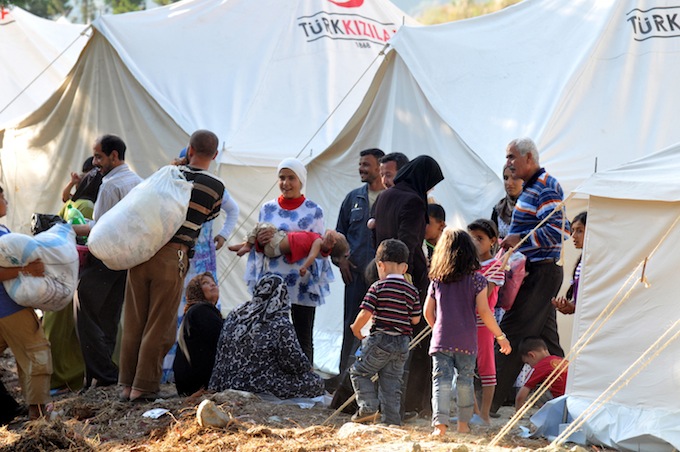
Syrian refugees who fled Syria for Turkey arrive at a refugee camp in Yayladagi village in Hatay, Turkey, 08 June 2011. While refugees from the fighting continue to pour across the border into Turkey, the question of Ankara’s intervention in the affairs of its southern neighbor has divided opponents of the Assad regime. (EPA/ISMIHAN OZGUVEN/ANATOLIAN AGENCY TURKEY OUT)
In a subsequent meeting, held in Istanbul on August 23, 2011, the Syrian opposition agreed to create a National Transition Council (NTC) comprised of opposition members both inside and outside the country and presided over by Burhan Ghalyoun, a Syrian academic residing in France.[39] Despite their differences, the intensity of the repression had brought opposition members together. Basma Qadmani, their spokesperson, told the media that “the NTC represents the major forces: political parties and independent figures who symbolize the Syrian opposition.” The names of Syria-based NTC members were kept secret to prevent reprisals.
In September, this group was renamed the Syrian National Council (SNC). It included members of the Damascus declaration, the Syrian Muslim Brotherhood, the Local Coordination Committees, the Syrian Revolution General Commission, Kurdish factions, tribal leaders, and independent figures. One of the first decisions of SNC was to approve a national consensus charter that defined the principles of the Syrian revolution:
1) Affirming that the Syrian revolution is a revolution for freedom and dignity;
2) Maintaining the peaceful nature of the revolution;
3) Affirming national unity and rejecting any call for sectarianism or monopolizing of the revolution;
4) Recognizing Syria is for all Syrians on an equal footing;
5) Rejecting foreign military intervention.[40]
While the opposition members initially rejected any foreign intervention, voices favoring this eventuality began to emerge, albeit still in the minority. During the Istanbul conference, Malih urged the U.N. to put an end to the bloodshed through political and diplomatic pressure but soundly rejected any military intervention.[41] Earlier, Kilo had also declared his desire “to see an exclusively Syrian solution… reached based on a broad, complete national understanding.”[42]
Yet given the worsening situation, the opposition has begun to consider different scenarios to bring the dictatorship to an end. Some favor following the Libyan example where the uprising combined with foreign military intervention to bring about the collapse of the regime: Ashraf al-Miqdad, signer to the Damascus declaration living in Australia, told Asharq al-Awsat that
the Syrian regime will never stop the repression and murders, meaning that there are only two options: foreign intervention or arming the revolutionaries… International military intervention has become the only possible solution. The other alternative would be to divide the army, which would avoid having to arm the people.[43]
Although these voices still represent a minority, they reflect the growing desperation of the Syrian opposition, which believes that the uprising may lose its muscle if none of the objectives are reached soon. On July 29, 2011, a group of defectors formed the Syrian Free Army (SFA).[44] By mid October, there were an estimated 10,000 to 15,000 defectors especially active in the north and central regions. In the last months of the year, SFA began launching some operations against the Syrian army.[45]
The LCC has tried to nip this debate in the bud, stating in a communiqué, “While we understand the motivation to take up arms or call for military intervention, we specifically reject this position as we find it unacceptable politically, nationally, and ethically.”[46] At least for now, then, it seems that a Libya-style intervention is being rejected. The communiqué stressed
The method by which the regime is overthrown is an indication of what Syria will be like in the post-regime era. If we maintain our peaceful demonstrations, which include our cities, towns, and villages, and our men, women, and children, the possibility of democracy in our country is much greater. If an armed confrontation or international military intervention becomes a reality, it will be virtually impossible to establish a legitimate foundation for a proud future Syria.[47]
Malih concurred, “Any foreign intervention would destroy Syria, just like what has happened in Libya… the revolution in Syria will prevail, and the regime will be brought down by peaceful means.” He added that “the revolutionaries will not fall into the trap” of militarizing the uprising.[48]
An eventual militarization could have devastating effects and would likely be exploited by the regime to present itself as the guarantor of internal stability and to regain some of the territory lost to the rebels. The possibility of an outbreak of civil war could have unforeseeable effects on Syria’s neighbors since it shares borders with Israel, Lebanon, Turkey, Iraq, and Jordan. As Arab League secretary general Nabil al-Arabi recently said, “Syria is not Libya… Syria plays a central role in the region, and what happens there has a direct impact on Lebanon and Iraq.”[49]
Conclusion
Although the influence of opposition intellectuals in Syria remains limited, there is little doubt that the Assad regime considers their demands for the release of political prisoners, suspension of the state of emergency, and an end to the single-party system a declaration of war. This further underscores the regime’s tenuous grip on power as none of the members of this small opposition group can count on a broad social base or hail from Syrian families boasting great wealth or long lines of politicians with the notable exception of Suhair Atassi, scion to a prominent political family that has produced three heads of state.
Given the absence of freedom of expression and the regime’s absolute control of the media, the intelligentsia has not been able to inculcate its message to the Syrian “street” or to mobilize it, a task that now falls entirely to the Local Coordination Committees. Some are further hampered by their past: A good portion of their members are Nasserites, communists, or socialists, affiliations that are in decline and lack any significant popular backing. Support for secularism also weakens their influence among the more traditional or devout segments of Syrian society.
Internal divisions and lack of coordination have also taken their toll. Some of the leading figures differ over core issues such as whether it is possible to have a dialogue with the regime; what the proper relationship with foreign powers should be; what form a transitional government should take, and how it should rule. These differences have been apparent over the last few months.
These structural deficiencies notwithstanding, the opinions of these intellectuals are followed by an important segment of the demonstrators, who hold the struggle by these thinkers against the regime in great esteem. Indeed, this group of intellectuals and critics is solidly represented in both the Committee for National Salvation and the Syrian National Council spearheading the uprising. Perhaps this uncertain situation is best summed up in Malih’s words:
The opposition and the Syrian intellectuals did not create the revolution. The revolution is the work of the youth. Now they need political support, and we want to be by their sides in this revolution.[50]
Ignacio Alvarez Ossorio is a lecturer of Arabic and Islamic studies in the University of Alicante, Spain. His recent books include Report on Arabs Revolts (Ediciones del Oriente y el Mediterráneo, 2011) and Contemporary Syria (Sintesis, 2009).
![]()
Notes:
[1] Syrian constitution, Mar. 13, 1973; al-Jazeera TV (Doha), July 25, 2011.
[2] “Statement by 99 Syrian Intellectuals,” al-Hayat, Sept. 27, 2000.
[3] Gary C. Gambill, “Dark Days Ahead for Syria’s Liberal Reformers,” Middle East Intelligence Bulletin, Feb. 2001.
[4] Human Rights Watch World Report 2002 — Syria, Human Rights Watch, New York, Jan. 17, 2002.
[5] Damascus declaration, Oct. 16, 2005.
[6] The Syria Monitor (Center for Liberty in the Middle East, Washington, D.C.), May 13, 2007.
[7] Joe Pace, interview with Kamal al-Labwani, posted on Syria Comment blog by Joshua Landis, Sept. 2, 2005.
[8] As-Safir (Beirut), Apr. 16, 2011.
[9] “Veteran Activist’s Demands Reflect New Syria,” Amnesty International, Washington, D.C., July 26, 2011.
[10] YouTube, Mar. 10, 2011.
[11] “The Syrian Revolution 2011,” Facebook, accessed Dec. 27, 2011.
[12] Asharq al-Awsat (London), July 16, 2011.
[13] “Veteran Activist’s Demands Reflect New Syria,” July 26, 2011.
[14] Pace, interview with Labwani, Sept. 2, 2005.
[15] Al-Akhbar (Cairo), Aug. 9, 2011.
[16] Voice of America, Mar. 30, 2011.
[17] The Guardian (London), June 27, 2011.
[18] Asharq al-Awsat, July 16, 2011.
[19] Omar Dahi, “A Syrian Drama: A Taxonomy of a Revolution,” posted on Syria Comment blog by Joshua Landis, Aug. 13, 2011.
[20] “Statement to the Syrian People,” Local Coordination Committees in Syria (LLC), Aug. 29, 2011.
[21] As-Safir, Apr. 16, 2011.
[22] Al-Akhbar, Aug. 9, 2011.
[23] Al-Jazeera TV, Mar. 28, 2011.
[24] Ibid.
[25] Ibid., June 27, 2011.
[26] Ibid.
[27] The Guardian, July 10, 2011.
[28] Asharq al-Awsat, July 13, 2011.
[29] Al-Watan (Kuwait), July 8, 2011.
[30] Syrian Arab News Agency (Damascus), July 12, 2011.
[31] Asharq al-Awsat, July 16, 2011.
[32] Declaration, Local Coordination Committees in Syria (LCC), Sept. 7, 2011.
[33] As-Safir, Apr. 26, 2011; al-Bayan (Dubai), July 11, 2011.
[34] BBC News, June 8, 2011.
[35] Ash-Sharq (Doha), Sept. 13, 2011.
[36] See Svante E. Cornell, “What Drives Turkish-Foreign-Policy?” Middle East Quarterly, Winter 2012, pp. 13-24.
[37] The National (Abu Dhabi), Aug. 11, 2011.
[38] France 24 TV (Paris), July 19, 2011.
[39] Associated Press, Oct. 3, 2011.
[40] National Consensus Charter, Syrian National Council, Sept. 15, 2011; Steven Heydemann, “Syria’s Opposition,” United States Institute of Peace, Washington, D.C., Sept. 20, 2011.
[41] France 24 TV, July 19, 2011.
[42] Al-Arab al-Yawm (Amman), June 18, 2011.
[43] Asharq al-Awsat, Sept. 6, 2011.
[44] YouTube, July 29, 2011.
[45] The New York Times, Nov. 17, 2011.
[46] “Statement to the Syrian People,” Local Coordination Committees in Syria, Aug. 29, 2011.
[48] Asharq al-Awsat, Sept. 11, 2011.
[49] Der Spiegel (Hamburg), Sept. 7, 2011.
[50] Asharq al-Awsat, July 13, 2011.



 RSS
RSS

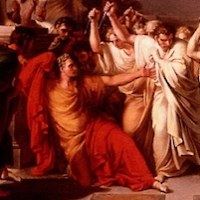
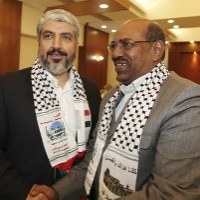
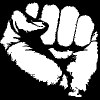
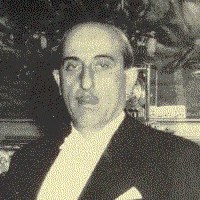
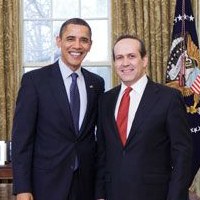




Bullshit. We know occidental countries, through NGOs and using the internet, have been promoting this. Young people, who are more likely to be affected by messages over the web, end up becoming easy preys to take part of this process of complete occidentalization of their societies, without any critical view. The idea is: if we cannot put an end in radicalization of islamic societies, let’s put an end in Islam itself. Islam has been turning more radical because of the economic and military occupation of their nations by occidental contries and companies. Now you are ousting every strong symbol of islamism, in a way to get rid of your fears. Even elected presidents you’re ousting now, with a double purpose: to enhance the economic and political grip on their societies and to quench your despair, because at least somebody raised against the all-powerful Occidental Empire, represented by the richest and most powerful nations of the world, working in association. Who are you trying to fool? Young arabic people who want to live the occidental dream should just leave their countries and work as slaves, as they do, in US, France, Germany and UK. Allah is vigilant and you will be accounted for your actions one day, trust me! الله أكبر!